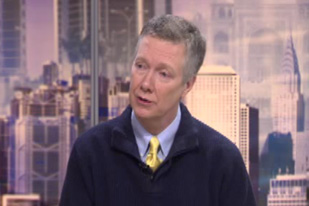
Modern-day slavery
A discussion on slavery today and what it would take to end human trafficking.
 |
| Kevin Bales, the president of Free the Slaves |
Sir David Frost: This Sunday will mark the 200th anniversary of the British parliamentary act that abolished the slave trade in Britain’s colonies, though not, of course, slavery itself.
And while many will celebrate this important milestone in history, slavery in a different form still exists around the world today. One estimated figure is 600,000 – 800,000 people globally being illegally trafficked each year, 60 per cent of them women and children.
Joining me now to discuss why slavery still exists and how we are going to combat it are campaigner Kevin Bales and Detective Chief Superintendent Nick Kinsella.
Why is the figure so high that I read in one of your leaflets that there may be 27million people in slavery today?
Kevin Bales: Yes that is right. As a matter of fact the population explosion that occurred after 1950 created a vast pool of potentially enslave-able people in the poorest parts of the world. And the only thing that is truly new about slavery today has been a complete collapse in the price of slaves. So slaves that in all of human history were high priced capital purchase items are now reduced globally to about $100 each.
DF: And slaves today are not necessarily just in the cotton plantations. What do slaves end up having to do?
KB: They are spread across all the jobs that are dirty and dangerous around the world. Some of those jobs, in agriculture for example, in cocoa or cotton or sugar actually help produce the commodities that come into our shops and homes. Others are trafficked into prostitution or domestic work. Incredibly, slave holders, traffickers, will find ways to exploit people that we almost never dream of. One of the cases that we recently worked on in the United States was the trafficking of a boy’s choir from Zambia to Texas that was used in a charity scam to take money from churches.
DF: Nick your aspect on all of this is prevention. Do you think the trafficking of human beings is a growing business or not?
Nick Kinsella: If I can say first of all that we [the UK human trafficking centre] are very heavily involved in prevention but also in prosecution and protection of victims. The key thing that goes through all of our work – the golden thread if you like – is actually taking forward a victim-centred approach to this issue.
In terms of whether it is a growing issue it is certainly one that has become more apparent over the last few years in the UK, particularly in the sexual exploitation market. Our centre is doing a lot of work with various partners – we are a multi-agency centre. We are doing a lot of work around that area but also around the broader spectrum of trafficking that Kevin has referred to. So our remit covers all aspects of trafficking – labour exploitation, domestic servitude as well as sexual exploitation.
DF: How many arrests do you and your department make in the course of a year in the field of human trafficking?
NK: Well, the UK human trafficking centre opened for business just last October so it is just coming up to six months old. One of our roles is to try to ensure that the response to trafficking – the enforcement response for example – becomes core police business so that this gets dealt with in every police force up and down the country. An example of the type of work that we do would be an operation that was conducted last year. As a result of that three-month operation, in which all 55 police forces in the United Kingdom played a part in some way or another, we recovered 84 victims from the sexual exploitation market and 12 of those were children.
DF: Did you find the people who had committed the crime as well?
NK: We did. There are a growing number of prosecutions in the UK – not enough I have to say – but certainly a growing number. There were 134 people charged as a result of that operation, 32 of those specifically with trafficking offences. I think the key point to make here is that this is being transformed now from a low risk crime to very much a high risk crime. And the courts are giving out very heavy sentences – we have seen 23 years, 21 years and so on.
DF: Are you Kevin, hearing that, optimistic that there will be a similar successful attack on the whole problem of slavery or is slavery endemic to the human condition?
KB: Well slavery has been endemic to the human condition. But a lot of the work that we have done over the last few years has demonstrated that it is more vulnerable to change and eradication than it has ever been. That 27 million is double the number that were removed from Africa in the entire 350 years of the slave trade but it is also the smallest proportion of the world population to ever be in slavery.
And the economic value of contemporary slavery is about $32billion a year, which is, in fact, a tiny drop in the global economic ocean. There aren’t vested economic interests except for criminal organisations that stand in the way of eradication. Today it is merely about commitment and awareness and bringing resources to bear. And we even have estimates about how much it would cost to bring slavery to an end around the world.
DF: How much?
KB: About nine billion pounds over a period of some 25 years. That is a lot of money but that is one per cent of [the UK] government’s budget.